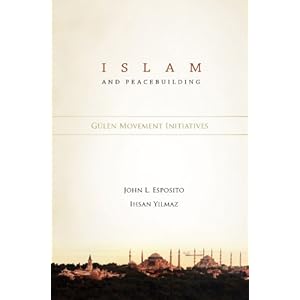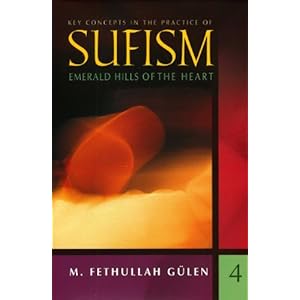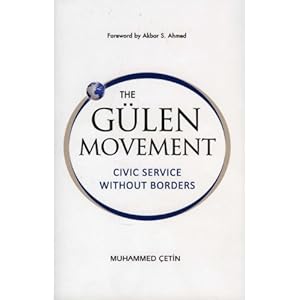More than 20 countries represented by scholars - watch the videos of Symposium on:
Hizmet Movement and Peacebuilding : Global Cases
held at the National Press Club in Washington DC on October 24-26 2013.
Rumi Forum's blog on Hizmet, Fethullah Gulen, peacebuilding, education and interfaith efforts.


Concluding a textually long but spiritually endless journey toward insan al-kamil?the perfect human?this fourth volume approaches Sufism through the middle way, an approach that revives the legacy of the Prophet Muhammad. With an awareness of the social realities of the 21st century, concepts such as tranquility, the truth of divinity, life beyond the physical realm, the preserved tablet, the glorified attributes, and the beautiful names are delicately explained. (3 previous volumes are also available)

This book seeks to develop an appropriate discourse for studying the Gulen Movement and phenomena like it. The established discourse concerns itself with social movements as protest, as challenge to the System, as contentious actors looking to alter or even overturn existing structures and/or policies in some field, usually political or economic. Approaching the matter from social movement theory and taking an insider's perspective, the author argues that the Gulen Movement is, as it has always been, non-contentious' it is not a marginalized actor working on the System from the outside. On the contrary, it has always worked within the System - within the boundaries of the laws and public norms that obtain in the different local and national settings where it has set up institutions.

This book has a double purpose. On the one hand, it is a call to Muslims to a greater awareness that Islam teaches the need for dialogue and that Muslims are called to be agents and witnesses to God's universal mercy. On the other hand, the book is an invitation to non-Muslims to move beyond prejudice, suspicion, and half-truths in order to arrive at an understanding what Islam is really about.

Writer Carroll states in the introduction that prior to a trip she made late in 2004 she was unaware that the organizers of the Institute for Interfaith Dialog based in Houston, Texas as well as the organizers of the trip itself were members of a community of people inspired by the notions of Fethullh Gulen, a Turkish Islamic scholar. Reading further we find Carroll's intent in this book is to 'place the ideas of Fethullh Gulen into the context of the larger humanities. Chapter titles are 1: Gulen and Kant on Inherent Human Value and Moral Dignity, 2: Gulen and Mill on Freedom, 3: Gulen, Confucius, and Plato on the Human Ideal, 4: Gulen, Confucius, and Plato on Education, 5: Gulen and Sartre on Responsibility. Kant's belief was that humans have inherent value, Gulen spoke of the transcendent value of human beings. Mills' assertions that the tyranny of the majority must be met head long was presented from his viewpoint of the nineteenth century Briton. Gulen avows that 'freedom allows people to do whatever they want, provided they do not harm others and they remain wholly devoted to the truth.' A Dialogue of Civilizations: Gulen's Islamic Ideals and Humanistic Discourse presents the query 'what is the level of resonance between Islam and the West?' That the twenty-first century has become an episode of heretofore unnoticed quandary is obvious. Up until 9-1-1 few worldwide really gave much thought to anything other than their own viewpoint. Writer Carroll finds significance can be gleaned an awareness of the theoretically divergent views of Gulen, Turkish Muslim scholar and those of Immanuel Kant, Confucius, Plato, John Stuart Mill, and Jean Paul Sartre regarding critical hypothesis including intrinsic ethical pride, creature significance, learning, autonomy, and accountability. The reader may be surprised to find out these figures who are separated by centuries in time, as well as oceans or continents have a propensity toward speaking the same language.
Writer Carroll's attentive writing style has produced a judicious and timely work, she is knowledgeable, presents her thesis in readable manner and holds reader interest. Not for everyone, if you are looking for a lighthearted, 'story' book for a quick afternoon read A Dialogue of Civilizations: Gulen's Islamic Ideals and Humanistic Discourse is not that book. If you would like to learn a little more about Gulen and his notions of education and dialog then A Dialogue of Civilizations: Gulen's Islamic Ideals and Humanistic Discourse will prove an eye-opening read.
Educational read, happy to recommend for those who are hoping to learn something of an interesting thesis. -- Midwest Book Review
More books on Fethullah Gulen:
Amazon.com: English - fethullah gulen: Books